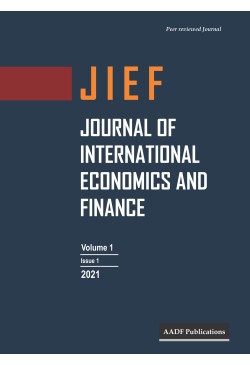The study examined effect of domestic investment on economic growth in Nigeria. The study covered the period of 41 years spanning from 1981 to 2021. Data were extracted from the Central Bank statistical bulletin and World Bank Data Indicator. The estimation techniques used were Autoregressive distributed lag (ARDL) and VAR. It was found that government domestic investment has negative but significant effect on economic growth in Nigeria in the long run. However, the government domestic investment has mixed effect on economic growth in Nigeria in the short run. Furthermore, the study found that there is no causal relationship between the private domestic investment and economic growth. However, it was found that a shock in the private domestic investment will lead to negative response of economic growth. Thus, the study concluded that effective planning, policies and monitoring machinery should be put in place to monitor government investment in order to steer the economy towards prosperity. In addition, the study concluded that monetary authority should control the supply of money to reduce the higher interest rate and inflationary pressure which affect private domestic investment and hinder economic growth. Thus, it was recommended that government investment should be concentrated on highly productive and potential project which may have lasting positive impact on the economy. More so, the regulatory authority should promote favourable business environment that will reduce inflation pressure and interest rate in order facilitate access to credit by private sector.
Keywords: Domestic investment, Private domestic investment, Government domestic investment, economic growth
Ahmed Tijani Abdulmajeed (2024). Effect of Domestic Investment on Economic Growth in Nigeria. Journal of International Economics and Finance, 4: 2, pp. 127-147.
